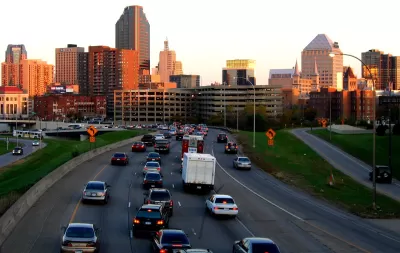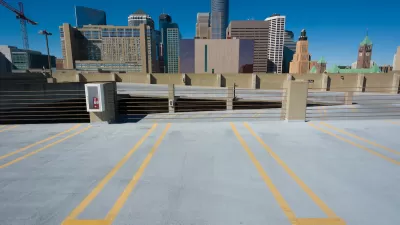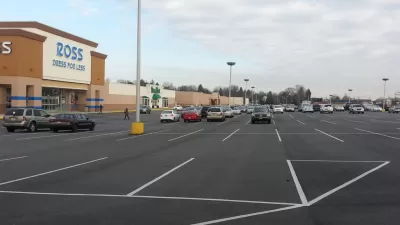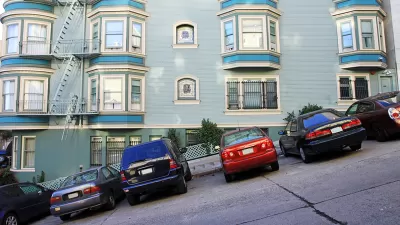The city is one of the first in the nation to completely eliminate parking mandates citywide.

In a move that goes beyond other efforts to reduce parking minimums in select parts of cities, St. Paul, Minnesota has entirely eliminated minimum off-street parking requirements, reports Frederick Melo. "St. Paul officials hope that tossing out parking mandates will open the door to new housing and businesses while moving the city closer to its goal of reducing vehicle miles traveled by 40 percent by the year 2040, and achieving carbon neutrality by 2050."
Developers can still provide off-street parking as they see fit, but zoning rules would no longer require certain numbers of spaces for different types of businesses. "Large developments will be required to offer users transit cards, traffic calming or other alternatives."
However, "[c]ritics have called lifting parking requirements burdensome and impractical, especially in areas with limited or no public transit. There’s also been some concern that the city might lose leverage in negotiations with developers over other public benefits attached to new real estate projects, such as installing bike racks."
With the construction of one parking spot costing anywhere from $5,000 for surface parking to upwards of $50,000 for structure parking, advocates call eliminating parking minimums "a free-market approach that opponents of government regulation should embrace."
FULL STORY: St. Paul eliminates parking minimums

Alabama: Trump Terminates Settlements for Black Communities Harmed By Raw Sewage
Trump deemed the landmark civil rights agreement “illegal DEI and environmental justice policy.”

Planetizen Federal Action Tracker
A weekly monitor of how Trump’s orders and actions are impacting planners and planning in America.

The 120 Year Old Tiny Home Villages That Sheltered San Francisco’s Earthquake Refugees
More than a century ago, San Francisco mobilized to house thousands of residents displaced by the 1906 earthquake. Could their strategy offer a model for the present?

Ken Jennings Launches Transit Web Series
The Jeopardy champ wants you to ride public transit.

BLM To Rescind Public Lands Rule
The change will downgrade conservation, once again putting federal land at risk for mining and other extractive uses.

Indy Neighborhood Group Builds Temporary Multi-Use Path
Community members, aided in part by funding from the city, repurposed a vehicle lane to create a protected bike and pedestrian path for the summer season.
Urban Design for Planners 1: Software Tools
This six-course series explores essential urban design concepts using open source software and equips planners with the tools they need to participate fully in the urban design process.
Planning for Universal Design
Learn the tools for implementing Universal Design in planning regulations.
Clanton & Associates, Inc.
Jessamine County Fiscal Court
Institute for Housing and Urban Development Studies (IHS)
City of Grandview
Harvard GSD Executive Education
Toledo-Lucas County Plan Commissions
Salt Lake City
NYU Wagner Graduate School of Public Service





























